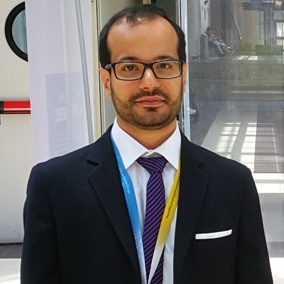Renewable Energy from the Sea
A special issue of Sustainability (ISSN 2071-1050). This special issue belongs to the section "Sustainable Engineering and Science".
Deadline for manuscript submissions: closed (30 September 2019) | Viewed by 3305
Special Issue Editors
Interests: HVAC; energy efficiency; energy saving in final users; sea wave; renewable energy
Special Issues, Collections and Topics in MDPI journals
Interests: renewable energies; sea wave; wave energy converters; wind energy; energy savings; energy plan; HVAC
Special Issues, Collections and Topics in MDPI journals
Special Issue Information
Dear Colleagues,
In recent years, the marine energy industry has experienced an increasing level of interest and activity across a range of technology-readiness levels, from blue skies research to the commercialization of marine energy conversion technologies; from the development of new concepts to sea tests of devices, and in some cases even array deployments. Sustainability is delighted to announce a Special Issue on “Renewable Energy from the Sea”, aiming to capture the latest advances in marine energy research and development, which will accelerate the uptake of new technologies and the expansion of the industry on a global scale.
The issue covers, but is not limited to, the following topics:
- ocean waves, tides, salinity, ocean temperature differences
- wave and tidal resource modelling, characterization and assessment
- design and assessment of novel wave and tidal energy converter components and systems;
- offshore wind power
- offshore hydrogen production from wave energy
- system and component reliability
- hybrid wave, tidal and offshore wind arrays;
- Environmental impact, LCA, socio-economic benefits of marine energy;
- control and power system integration of wave and tidal arrays;
- operational and logistics aspects of marine energy conversion systems;
- policy, regulatory and commercial practices.
Prof. Dr. Vincenzo Franzitta
Dr. Domenico Curto
Guest Editors
Manuscript Submission Information
Manuscripts should be submitted online at www.mdpi.com by registering and logging in to this website. Once you are registered, click here to go to the submission form. Manuscripts can be submitted until the deadline. All submissions that pass pre-check are peer-reviewed. Accepted papers will be published continuously in the journal (as soon as accepted) and will be listed together on the special issue website. Research articles, review articles as well as short communications are invited. For planned papers, a title and short abstract (about 100 words) can be sent to the Editorial Office for announcement on this website.
Submitted manuscripts should not have been published previously, nor be under consideration for publication elsewhere (except conference proceedings papers). All manuscripts are thoroughly refereed through a single-blind peer-review process. A guide for authors and other relevant information for submission of manuscripts is available on the Instructions for Authors page. Sustainability is an international peer-reviewed open access semimonthly journal published by MDPI.
Please visit the Instructions for Authors page before submitting a manuscript. The Article Processing Charge (APC) for publication in this open access journal is 2400 CHF (Swiss Francs). Submitted papers should be well formatted and use good English. Authors may use MDPI's English editing service prior to publication or during author revisions.
Keywords
- Wave Energy
- Tidal Energy
- Offshore Wind Energy
- Energy Conversion
- Resource Assessment
- Multi-platform Concepts
- Arrays of Energy Converters
- Numerical Modelling
- Laboratory Modeling
- Environmental Impact
- Economic Assessments
- Cost of Energy
- LCA






